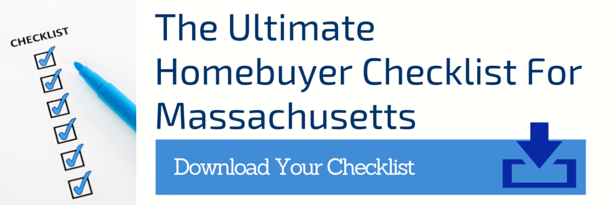Sometimes a Massachusetts homebuyer will see language in an MLS listing that indicates a seller needs or wants a "suitable housing contingency."
 There are various interpretations of what precisely a suitable housing contingency means and how real estate agents or attorneys will write the clause into a real estate contract. Essentially, a suitable housing contingency is the seller's version of a home sale contingency.
There are various interpretations of what precisely a suitable housing contingency means and how real estate agents or attorneys will write the clause into a real estate contract. Essentially, a suitable housing contingency is the seller's version of a home sale contingency.
A suitable housing contingency in an offer to purchase or a purchase and sale agreement means that if the seller is not able to secure an alternate satisfactory residence pre- or post-closing, the seller can cancel the real estate transaction. The idea is that the seller wants to avoid any period or the possibility of selling their home without a suitable replacement, and becoming "homeless" for some length of time.
As understandable as that may be, a blanket suitable housing contingency - one that simply states, "This Agreement is contingent upon Seller securing suitable housing" or the substantial equivalent - presents several issues for a homebuyer:
• Contract language that broad would allow the seller to cancel the transaction at virtually any time. Literally, the buyer and the seller could complete half the paperwork at the closing, and the seller could exercise the suitable housing contingency clause and cancel the transaction.
• A suitable housing contingency often does not address whatever costs the buyer has spent at that point in the transaction. Not including the deposit(s), typically within two to three weeks into the transaction, the buyer has spent up to $1,000 on the home inspection and other due diligence costs, up to $450 in an upfront appraisal fee, and potentially several hundred dollars in attorney's fees. Even in a seller's market, it seems unfair for a seller to be able to cancel a real estate transaction using a suitable housing contingency, and the buyer is forced to start their home search over with losses of $1,000 to $2,000 for circumstances not in the buyer's control.
As with many things in real estate, every seller's situation is unique; therefore, options to handle suitable housing contingencies are likely to be case-by-case to address specific circumstances. The following are multiple options to consider for a reasonable compromise between home buyers and home sellers:
1. Later Closing Date. If the buyer has the flexibility, having an extended closing date gives the seller extra time to find and purchase (or rent) their next home. One factor a homebuyers should consider is their mortgage interest rate lock. Once a buyer has a property under contract, most lenders will lock an interest rate for somewhere between 30 to 60 days. If the closing date is more than 60 days from the loan application date, the buyer may need to pay an extra fee to extend the rate lock, or, alternately, float the rate for some time before locking it.
2. Flexible Closing Date. A second option is to give the seller considerable flexibility with choosing a closing date. A flexible closing date only works if the homebuyer has the flexibility, but it could be quite enticing for a seller to have the ability to choose their closing date at one or more points in the real estate transaction. The parties can accomplish a flexible closing by adding language similar to this in an offer: "At the signing of Purchase & Sale Agreement, SELLER can choose a closing date of anywhere between ___________ and ___________. SELLER can also change the closing date with seven (7) days notice to BUYER to any date within that time frame."
 3. Limited Suitable Housing Contingency. A third option is for the buyer to give the seller a suitable housing contingency, but only for a certain amount of time, something like two to three weeks. That provides the seller with the advantage of conducting the home search for alternate housing while having a property under agreement, but the buyer has peace of mind that after a certain point the transaction will continue without the risk of the rug getting pulled out from under the buyer. If a buyer chooses this option, there should be a discussion on whether the deadlines for a home inspection, deposit(s), and loan application begin running from the date the parties execute the contract or at the expiration of the suitable housing contingency date.
3. Limited Suitable Housing Contingency. A third option is for the buyer to give the seller a suitable housing contingency, but only for a certain amount of time, something like two to three weeks. That provides the seller with the advantage of conducting the home search for alternate housing while having a property under agreement, but the buyer has peace of mind that after a certain point the transaction will continue without the risk of the rug getting pulled out from under the buyer. If a buyer chooses this option, there should be a discussion on whether the deadlines for a home inspection, deposit(s), and loan application begin running from the date the parties execute the contract or at the expiration of the suitable housing contingency date.
4. Buyer Cost Reimbursement. Another option is for the buyer to give the seller a suitable housing contingency, but when the seller exercises the suitable housing contingency, the seller has to reimburse the buyer for the buyer's actual costs in connection with the home purchase. These costs include the home inspection, appraisal fee, attorney fees, and other due diligence.
5. Use and Occupancy Agreement. Depending on the circumstances, a reasonable alternative to a suitable housing contingency, particularly in a seller's market, would be for a seller and homebuyer to agree on a short-term "use and occupancy agreement" following the closing (Learn more about using a use and occupancy agreement). Most articles about use and occupancy agreements focus on the homebuyer moving into the property before the closing. A use and occupancy agreement also can benefit the seller. The alternative situation has the seller staying in the home after the closing. This type of use and occupancy agreement would allow the seller to sell their property to the homebuyer and remain in the property for a short term following the closing, typically from a week to two months. Most residential mortgages require the borrower to occupy the property as their principal residence within 60 days. A use and occupancy agreement has two benefits for the seller: (i) it gives the seller some extra time, if needed, to find suitable housing; and (ii) if they close on a property and have some time to remain in the home, the seller has the option of negotiating an offer on the new home without having to include a home sale contingency. Not needing the home sale contingency increases the chance of selling "home No. 1" and buying "home No. 2" without having to manage interim housing and incurring the costs of multiple moves and storage. Of course, there are risks to a homebuyer agreeing to a use and occupancy agreement with the seller remaining in the home after closing. These include:
A. Damage to the Property. Prior the closing, the buyer typically does a walkthrough to make sure the property is in the same condition as it was at the time of the home inspection (wear & tear notwithstanding), and that any personal property included in the agreement remained on the premises. Also, the seller must remove all property that was not part of the agreement. The issue with the seller living in the property post-closing is that if there is damage to the property following the closing, or if there are other issues, the buyer does not have any adequate recourse, other than filing a lawsuit.
B. Seller Squats. There is no standard form use and occupancy agreement, but most agreements attorneys draft contain language stating the agreement is not a lease, and the contract specifically does not create a tenancy relationship. Such language creates an issue when a seller does not vacate the property at the end of the agreed-upon use and occupancy period. Even though the use and occupancy agreement may state that there are no tenancy rights, a buyer probably cannot self-evict if a seller remains in the property, and if a lawsuit is required, the eviction process takes several months. One way to deter a seller from failing to vacate at the end of the term is to include a monetary penalty for each day after the termination date that far exceeds the contract's stated per diem amount.
C. Insurance and Utilities. A use and occupancy agreement creates other questions, such as who is responsible for paying the utilities after the closing? Also, a buyer's homeowner's insurance policy might not cover injuries or losses that happen to a non-owner resident (e.g., the seller or their guests) if the homeowner (the buyer at that point) is not residing in the property. An experienced Massachusetts real estate attorney should work out these details in the use and occupancy agreement.
Whenever a homebuyer is considering signing a contract to purchase real estate or a purchase and sale agreement in Massachusetts with a suitable housing contingency, the homebuyer should discuss the pros and cons of such an agreement with his or her buyer agent. Homebuyers should go over the details of the agreement with their real estate attorney before signing anything.
The information on this website is not legal advice, but for informational purposes only. Please consult an attorney about your specific situation and please read the full disclaimer.






